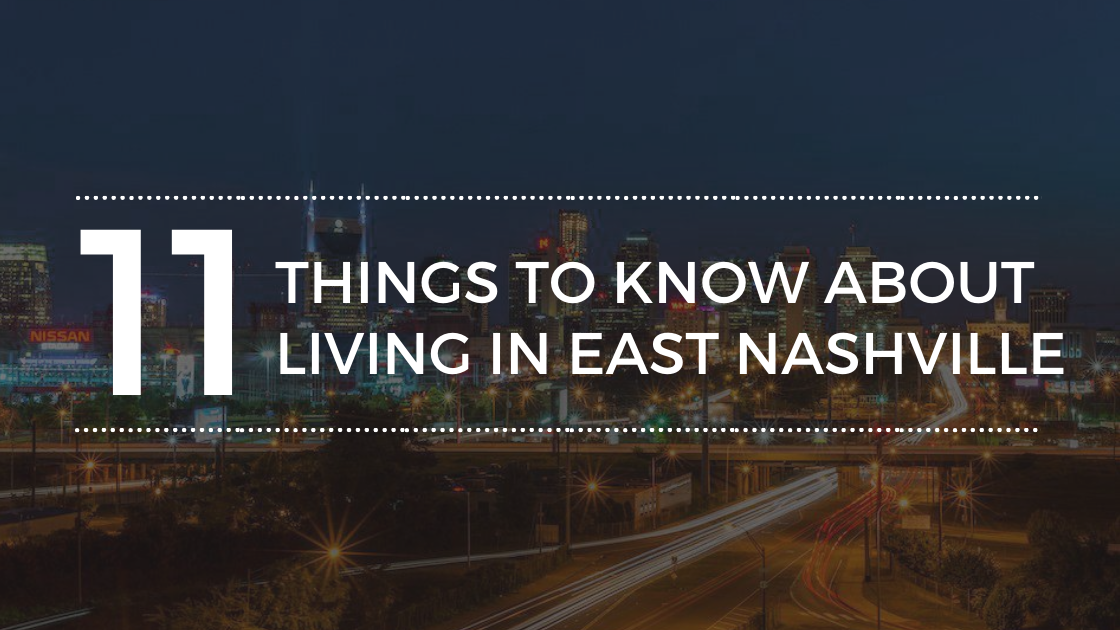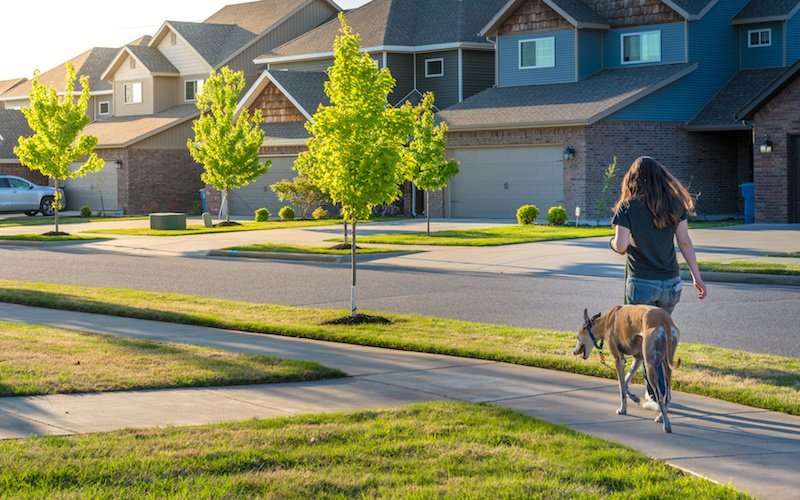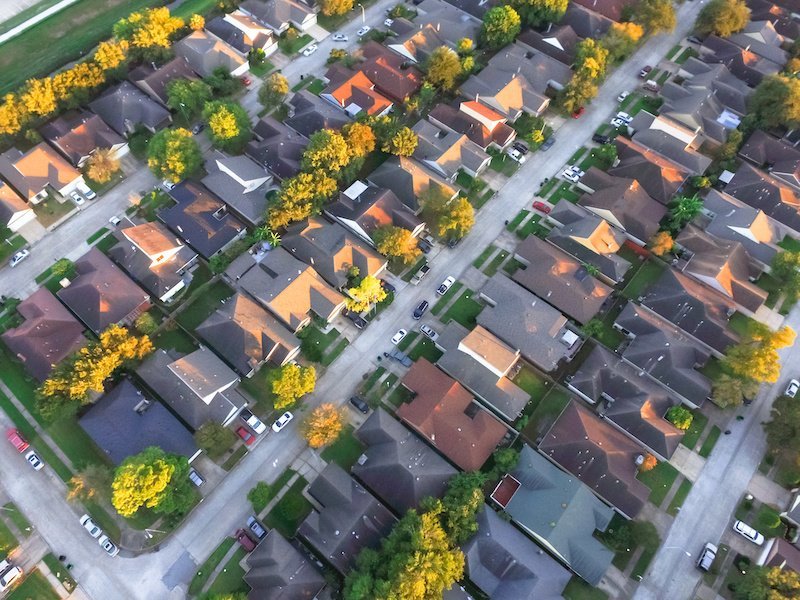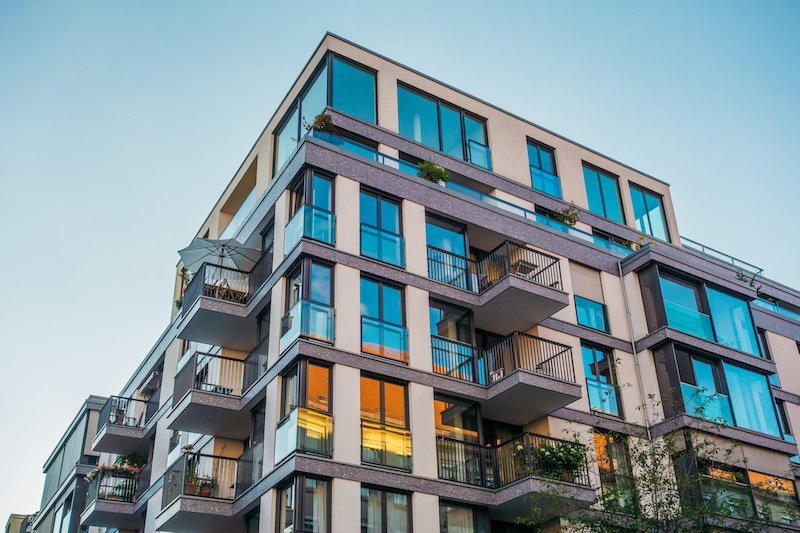What You Need To Know About Living In East Nashville
Posted by Gary Ashton on Tuesday, December 5th, 2023 at 7:09am.

East Nashville, a vibrant and eclectic area that’s home to several of Nashville’s best neighborhoods, offers a unique living experience. Known for its artistic flair and community spirit, this area combines the charm of historic architecture with a lively contemporary culture. From local music venues and art galleries to diverse culinary offerings, East Nashville is a hub of creativity and innovation. Understanding the East Nashville area means understanding its cultural richness, local amenities, and the sense of community that makes it a standout choice for residents seeking a dynamic and connected lifestyle in the heart of Music City.
History of the East Nashville Area
East Nashville's history is as rich and colorful as its present-day cultural tapestry. Initially developed in the late 19th century, this area across the Cumberland River from Downtown Nashville began as an affluent suburb. It was home to grand Victorian houses and well-to-do families, evident in the architectural legacy that still stands today. However, the Great Fire of 1916 marked a significant turning point for East Nashville. The fire devastated over 600 homes, leading to a long period of rebuilding and transformation. In the aftermath, the neighborhood's character began to shift, attracting a more diverse population and fostering a strong sense of community resilience.
Throughout the 20th century, East Nashville experienced various cycles of economic and social change. For example, the construction of the interstate in the 1960s brought about physical division and economic challenges—though it would prove to be vital to the development of Nashville’s economy. Despite these trials, the neighborhood's spirit endured, setting the stage for its renaissance in the late 20th and early 21st centuries.
Today, East Nashville is celebrated for its eclectic mix of artists, musicians, and entrepreneurs. It has become a hub of creativity and innovation, renowned for its local music venues, art galleries, and diverse culinary scene. The area's rich history has shaped its unique identity, making East Nashville a beloved and vibrant part of Nashville's urban landscape.
East Nashville Food Scene
 The food and drink scene in East Nashville is a major factor in the area's vibe and appeal. From coffee shops and brunch spots to great bakeries, bars, and wide-ranging restaurants, East Nashville is a foodie's paradise. Casual fare in East Nashville is anchored by spots like Grillshack Fries & Burgers—often referred to as Riverside Grill Shack—and Five Points Pizza, but if a more elevated dining experience is on the agenda, there's also plenty to choose from.
The food and drink scene in East Nashville is a major factor in the area's vibe and appeal. From coffee shops and brunch spots to great bakeries, bars, and wide-ranging restaurants, East Nashville is a foodie's paradise. Casual fare in East Nashville is anchored by spots like Grillshack Fries & Burgers—often referred to as Riverside Grill Shack—and Five Points Pizza, but if a more elevated dining experience is on the agenda, there's also plenty to choose from.
Pelican & Pig has the best focaccia bread in town, the smells of which are circulated by its rustic wood-burning oven. For modern Middle Eastern cuisine done the Nashville way, check out Lyra on West Eastland Avenue. If a tapas-heavy menu sounds good, Peninsula—also on West Eastland—is the place to be.
From Incredible Coffee to Craft Cocktails
Barista Parlor, The Post East, Portland Brew, and Ugly Mugs have all the coffee lovers covered; no matter where you are in East Nashville, there's a great coffee spot within a block or two. Even though you can get coffee any time of day here, it's a well-known fact that it's always five o'clock somewhere in Nashville, and East End bars and cocktail lounges have something for everyone. Attaboy, a must-visit spot in the Historic Edgefield neighborhood for an elevated cocktail experience, tailors drinks to each and every customer's preferences. If your tastes lean more tropical, be sure to stop in to CHOPPER, a self-described robot-fueled tiki bar in the Lockeland Springs neighborhood.
The Best Neighborhoods in East Nashville
Home values in Nashville have been steadily increasing for years, and the housing boom and huge population influx have further driven prices up. All of this can be attributed to the city-wide growth, but in East Nashville in particular, the appeal of living in the area has had a tremendous impact on home values and quality of life here. For homebuyers moving to Nashville and considering the East End, becoming familiar with some of the best neighborhoods on this side of the city is of vital importance.
Shelby Hills
 East Nashville's Shelby Hills neighborhood offers a blend of new and old homes, with many changes yet to come. Still considered a transitional neighborhood, the area has some streets that are further along than others. Consisting of the area between Shelby Park to the east, 10th Street to the west, Shelby Ave to the north, and the river to the south, this old rail car neighborhood is a great option for those looking to move into the area. Restaurants nearby include Far East, Bella Nashville, and AMOT.
East Nashville's Shelby Hills neighborhood offers a blend of new and old homes, with many changes yet to come. Still considered a transitional neighborhood, the area has some streets that are further along than others. Consisting of the area between Shelby Park to the east, 10th Street to the west, Shelby Ave to the north, and the river to the south, this old rail car neighborhood is a great option for those looking to move into the area. Restaurants nearby include Far East, Bella Nashville, and AMOT.
Backing up to Shelby Park makes Shelby Hills the perfect place to live, with access to the park and greenways. While the neighborhood is very much in flux, its share of the luxury homes in Nashville is spectacular, and its sense of community is abundant. Visit the Shelby Hills Association for more information regarding the area, school zoning, events, and more!
Lockeland Springs
Lockeland Springs is a popular neighborhood in East Nashville due, in large part, to the tremendous convenience and accessibility provided by its location. In addition, the convenient proximity to downtown access roads and highways, restaurants, and bars make it doubly appealing. The homes in this area are on the larger side, and the highly walkable neighborhood has a very suburban feel. Additional points of interest include the Lockeland School, Holly Street Firehall, and the East Branch Public Library, all located in this neighborhood. Check the Lockeland Springs Neighborhood Association for more information.
Eastwood Neighbors
The Eastwood neighborhood is another area of East Nashville that was built up long ago, enabled by the rail car that enabled residents to have a home away from downtown that's still convenient and accessible. The architecture and design of this portion of East Nashville range from Queen Ann to classical revival, and its share of the historic homes in Nashville is highly sought-after.
Cleveland Park
Located just northeast of downtown Nashville, the Cleveland Park neighborhood is home to about 2,200 residents and is considered one of East Nashville's up-and-coming neighborhoods. It is bordered on the north by Douglas Avenue, the west by Dickerson Pike, the south by Cleveland Street, and Ellington Parkway to the east. The area is known for its distinctive architecture, dating from the late 19th and early 20th centuries. Cleveland Park has seen increased property values and development in recent years, and residents have easy access to local coffee shops, bars, eateries, and Nashville's public transportation.
East End
The East End neighborhood is close to downtown and bordered by the city's sought-after Five Points area. Five Points is known for its many restaurants, shops, bars, and festivals, giving East End residents a thriving entertainment district within walking distance. Home to nearly 700 residents, East End features many historic homes, though many renovated properties are also due to the 1998 tornado. East End is one of Nashville's most walkable neighborhoods. The area boasts a mix of a suburban and urban vibe, making it attractive to home buyers.
Five Points
 Often dubbed the hipster headquarters of Nashville and the heart of the city's east side, the Five Points district is an eclectic mix of restaurants, bars, shops, and retailers. Five Points is centered at Woodland Street and North 11th Street. Homeowners here often choose the area because they want to be within walking distance of local bars and eateries, specialty shops, and galleries that define the neighborhood. After going through a revitalization in the early 2000s, the area has emerged as a thriving part of East Nashville life, and it's home to some of the most sought-after lofts in Nashville.
Often dubbed the hipster headquarters of Nashville and the heart of the city's east side, the Five Points district is an eclectic mix of restaurants, bars, shops, and retailers. Five Points is centered at Woodland Street and North 11th Street. Homeowners here often choose the area because they want to be within walking distance of local bars and eateries, specialty shops, and galleries that define the neighborhood. After going through a revitalization in the early 2000s, the area has emerged as a thriving part of East Nashville life, and it's home to some of the most sought-after lofts in Nashville.
Historic Edgefield
Historic Edgefield is near downtown, just across Interstate 24 from the Nissan Stadium, extending eastward as far as South 10th Street. As its name would imply, the Historic Edgefield neighborhood is known for its charming and colorful Victorian homes. While the neighborhood is mostly residential, it adjoins the Five Points and East Park areas, which offer a wide assortment of restaurants, bars, and specialty shops. Known for its charm and beauty, Historic Edgefield is home to some of the most luxurious homes in East Nashville.
Inglewood
The Inglewood neighborhood encompasses the northeast corner of East Nashville, bordered by Briley Parkway to the north, the Cumberland River to the east, Cahill Avenue and Porter Road to the south, and Gallatin Pike and railroad tracks to the west. Unlike other East Nashville neighborhoods, Inglewood isn't known for its historic homes. Instead, it offers an abundance of Nashville new construction homes, though there are still homes from the 1930s and '40s. Residents of this sprawling neighborhood lay claim to Riverside Village, home to unique eateries and pubs. The area has also seen an influx of artists and artisans. While it is less walkable than many East Nashville neighborhoods, residents are attracted to the area's urban feel.
McFerrin Park
Close to downtown Nashville, McFerrin Park is considered to be an up-and-coming neighborhood in East Nashville. It is flanked north by Cleveland Street, Ellington Parkway to the east, Foster Street to the south, and Interstate Highway 24 to the west. Like many neighborhoods on the east side, McFerrin Park is home to an abundance of unique, locally-owned restaurants. The neighborhood is also home to its namesake, McFerrin Park.
Rolling Acres
Rolling Acres is found between Porter Road, Riverside Drive, and Shelby Park. Most homes sit on half-acre lots, with the majority offering basements, though mostly unfinished. The majority of homes in Rolling Acres were built between the 1940s and 1960s. While not as walkable to retail and entertainment districts as some nearby neighborhoods, residents appreciate that most homes are within easy walking distance to the Shelby Golf Course, one of Nashville's best golf courses.
West Greenwood
West Greenwood, often referred to as Greenwood, has about 2,300 residents in East Nashville. The neighborhood offers easy access to Ellington Parkway, and residents can walk comfortably from their homes to grocery stores and other retailers. West Greenwood is bordered by Ellington Parkway on the west, Douglas Avenue to the north, Gallatin Avenue on the east, and Cleveland Street and West Eastland Avenue along the south.
Porter Heights
 Porter Heights has plenty of appeal for its residents, from live music and great restaurants to a relaxing walk in the park. In addition to its bistros and eateries, there is easy access to Shelby Bottoms Greenway and Nature Park—one of Nashville's best parks—which consists of 960 acres, including three miles of Cumberland River frontage. There are over five miles of paved trails and another five miles of natural trails with open fields, wetlands, streams, and forests. Porter Road borders Porter Heights to the north and west, the Shelby Bottoms Nature Center and Greenway to the east, and Carter Avenue to the south.
Porter Heights has plenty of appeal for its residents, from live music and great restaurants to a relaxing walk in the park. In addition to its bistros and eateries, there is easy access to Shelby Bottoms Greenway and Nature Park—one of Nashville's best parks—which consists of 960 acres, including three miles of Cumberland River frontage. There are over five miles of paved trails and another five miles of natural trails with open fields, wetlands, streams, and forests. Porter Road borders Porter Heights to the north and west, the Shelby Bottoms Nature Center and Greenway to the east, and Carter Avenue to the south.
Barclay Drive
The Barclay Drive neighborhood is bordered by the Shelby Bottoms Nature Center and Greenway to its south and east, Shelby Golf Course to the west, and Eastland Avenue to the north. About 1,200 residents call the Barclay Drive area home. Residents of Barclay Drive neighborhood are within a 15-minute commute to downtown Nashville. A dog-friendly neighborhood with quiet streets and well-kept yards is what residents say they appreciate about Barclay Drive.
Rosebank
Also located adjacent to East Nashville's Shelby Bottoms Greenway, the Rosebank neighborhood has increasingly attracted the attention of homebuyers. However, you will still find available existing homes, some dating back to the 1930s. Residents have found Rosebank housing to be more affordable than some other East Nashville neighborhoods. The neighborhood is encircled by Eastland Avenue on the south and east, while Carter Avenue borders it to the north. Rosebank extends as far west as the railroad tracks just beyond Riverside Drive. The median list price of homes here is about $470,000.
Highland Heights
The architectural diversity in the Highland Heights neighborhood is a major part of its appeal to homebuyers. Here, you'll find the popular Craftsman homes, as well as everything from Tudors to cottage homes. You'll also find stunning homes built in the 1920s. For those looking for new construction, Highland Heights has that, as well. The Highland Heights neighborhood sits just north of Cleveland Park, bordered by Dickerson Pike to the west, Douglas Avenue to the south, Ellington Parkway to the east, and East Trinity Lane.

Coming Home to East Nashville
Living in East Nashville provides a colorful tapestry of experiences, blending artistic expression with a strong sense of community. This neighborhood is more than just a place to live; it's a community where creativity and collaboration thrive, and where access to Nashville's outdoor activities is unmatched. With its array of local shops, restaurants, and entertainment options, East Nashville invites residents to engage in a lifestyle that is both enriching and invigorating. For those drawn to a place where tradition meets modernity, East Nashville stands out as a neighborhood that not only accommodates but celebrates diverse interests and backgrounds, making it a truly unique and vibrant place to call home.
If you're looking for a home in East Nashville, contact The Ashton Real Estate Group of RE/MAX Advantage with Nashville's MLS at (615) 603-3602 to speak to a local real estate agent and discover your East Nashville dream home today.

Gary Ashton
The Ashton Real Estate Group of RE/MAX Advantage
The #1 RE/MAX team in the World!
